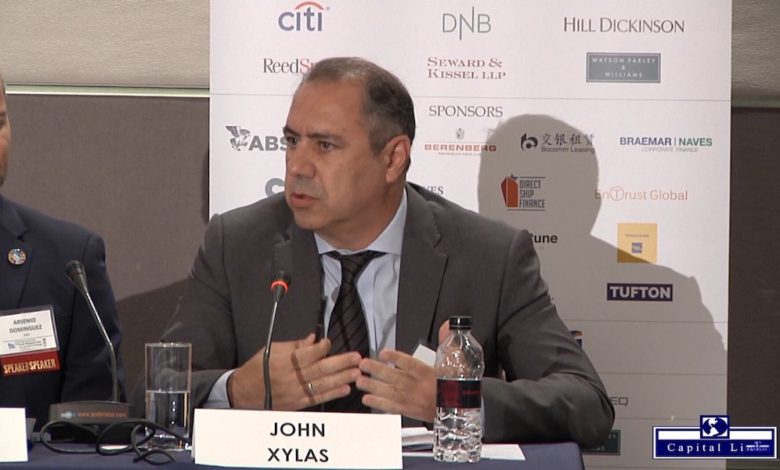Ariston Navigation: ‘Regional regulations are problematic by definition’

At Greek shipping events these days, discussion does tend to focus on the governance of green shipping, something that will no doubt form a key plank of debate at Posidonia this week.
Discussing the latest developments in shipping regulations at the recent Capital Link Greek Shipping Forum’s twelfth annual conference, John Xylas, board member of the Union of Greek Shipowners (UGS) and president and CEO of Ariston Navigation, suggested that the European Union’s emissions trading system (ETS) is unnecessary for shipping and has two shortcomings, being both a regional system and a trading scheme.
“EU regulations are regional, and regional regulations are problematic by definition,” he said, warning that the system had originally been designed with land-based industries in mind and that it would be small- and medium-sized enterprises who will bear the lion’s share of the burden as and when the ETS starts for shipping.
Instead, Xylas proposed a levy system as something more appropriate and effective. He argued that to safeguard the sustainability of EU shipping, any proposed legislation by the EU must be compatible with the inherent characteristics of the international shipping industry while remaining compatible with the rules and standards of the International Maritime Organization (IMO). “The viability of EU shipping, which is primarily international and cross-trade, depends on the existence of an effective global regime,” explained Xylas.
Launched in 2005, the EU ETS was the first large greenhouse gas emissions trading scheme in the world. For Xylas, the so-called “polluter pays principle” must be properly implemented, with suppliers of alternative green fuels taking their share of the responsibility as well.
“The commercial operator, the actual polluter who determines the cargo carriage, who determines the itinerary, the route, and the speed of the ship, must be made responsible for the cost of the compliance with the EU ETS directive,” Xylas said.
Citing Eurostat, Xylas said the EU accounted for around 15% of the world’s trade in goods with about 35%t of the fleet. He noted that half of that fleet is being used for cross-trading and servicing third parties, of which the majority is tramp shipping, which faces an additional burden as by nature it does not follow regular routes.
“Tramp owners do not know when, where, or at which speed the commercial operator will take the ship, so the commercial operator is structurally part of their business. It’s not incidentally part of their business, therefore he should bear his share of responsibility,” he argued.
On the subject of the EU’s proposal to set up a fuel standard and place the responsibility for compliance on the shipping company, Xylas and th UGS supported the proposal for the legal responsibility to be on the EU marine fuel suppliers and ships at EU ports, as well as the exclusion of the incoming voyages from the application of this regulation.
“The availability of the required compliant fuels worldwide is a matter of additional concern, as is the potential distortion of competition between EU and non-EU suppliers and ports, so I think it’s highly inappropriate to oblige ships to comply with this proposed regulation,” he said.
Xylas asserted that shipping needs a larger audience to influence how public opinion perceives the industry.
“Discussing things amongst ourselves is not good enough. I think the message has to be to go further away to the wider audience, not only to the regulators and the politicians and the NGOs and the media,” he told the conference.
This article first appeared in the most recent issue of Maritime CEO magazine, which is being distributed at Posidonia this week. Splash readers can access the full magazine for free by clicking here.

